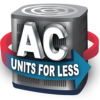10 Common Problems in Your HVAC Cooling System
Heating, Ventilation, and Air Conditioning (HVAC) systems are essential for maintaining comfort in homes and businesses, especially during the warmer months. However, like any complex machinery, they can encounter a range of issues that affect their efficiency and performance. Here are ten common problems you might encounter with your HVAC cooling system:
1. Inadequate Cooling
One of the most noticeable signs of an issue with your HVAC system is when it fails to cool your space effectively. This problem can stem from various sources, including low refrigerant levels, dirty air filters, or an improperly sized system for your space.
2. Refrigerant Leaks
The refrigerant is the substance that your HVAC system uses to remove heat from the air inside your building. If there's a leak in the system, it will not cool as effectively. Refrigerant leaks require professional repair to ensure the system is sealed and charged correctly.
3. Dirty or Clogged Filters
Air filters trap dust, pollen, and other airborne particles. Over time, these filters can become clogged, restricting airflow and reducing the system's efficiency. Regularly changing or cleaning the air filters can prevent this issue.
4. Thermostat Problems
Sometimes the issue might not be with the HVAC system itself but with the thermostat. Incorrect settings, dead batteries, or a malfunctioning thermostat can lead to cooling problems.
5. Electrical Issues
HVAC systems rely on an array of electrical components to operate. Over time, connections can become loose, or components can fail, leading to a system breakdown. Regular maintenance can help identify and correct these issues before they lead to a system failure.
6. Drainage Problems
The cooling process can produce condensation, which needs to be drained away. If the drain line becomes clogged or the drain pan is full, it can lead to water damage or affect your system's performance.
7. Ignored Maintenance
Regular maintenance is crucial for the longevity and efficiency of your HVAC system. Neglecting this can lead to a host of problems, including reduced efficiency, higher utility bills, and a shorter lifespan for the system.
8. Ductwork Leaks
Leaky ducts can significantly reduce the efficiency of your HVAC system by allowing cool air to escape into unconditioned spaces. This not only makes your system work harder but also increases your energy bills.
9. Fan Problems
Your HVAC system has two fans: one that blows indoor air over the evaporator coil to cool it, and another that blows air over the outdoor unit's condenser to expel absorbed heat outside the building. Problems with these fans, such as motor issues, worn belts, or too much dirt and debris, can severely impact your system's effectiveness.
10. Aging System
Like all equipment, HVAC systems have a finite lifespan, typically around 10-15 years. Over time, components wear out, and efficiency decreases, leading to more frequent repairs and reduced performance. At some point, it becomes more cost-effective to replace an old system rather than repair it.


